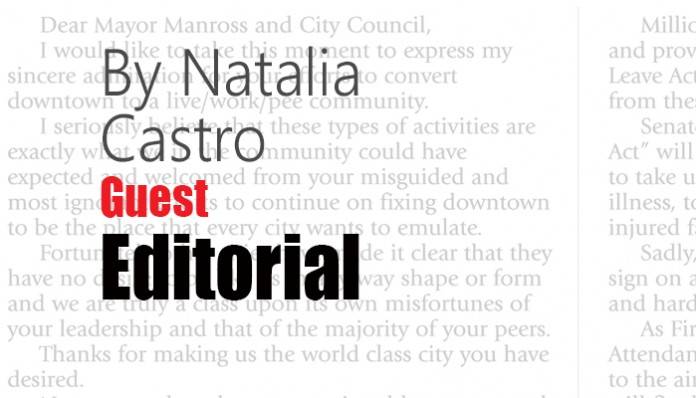By Natalia Castro
The Environmental Protection Agency has weaponized the rule of law in order to expand its own power for years. Now under the Trump Administration, EPA Director Scott Pruitt is working to reverse this trend and make it harder for his department to conceal information from the American people.
With a directive Pruitt signed this month, the ability for the EPA to engage in covert sue and settle law suits is severely diminished through promoting transparency and public participation. The directive takes a major aim at increasing public awareness of EPA activity; the directive requires the Agency to publish notices they receive of intentions to sue, publish complaints against environmental law, and publish a list of consent decrees and settlement agreements that govern Agency actions within 30 days.
Sue and settle lawsuits are simple, an environmental group will sue the EPA for not protecting the environment in some way, and rather than fighting the case, the EPA would settle. As a result of these settlement agreements, the EPA expands the scope of their power to include whatever the environmental group was asking the EPA to do. Essentially, sue and settle lawsuits use the power of the judiciary to expand an executive agency’s power.
Pruitt’s latest directive offers a dramatic shift from the Obama Administration. Former U.S. Rep. Lynn Westmoreland of Georgia led the charge against Obama’s EPA use of sue and settles. He noted in a July 2015 speech on the House floor, “Between 2009 and 2012, the EPA chose not to defend itself in over 60 of these lawsuits from special interest advocacy groups. Those 60 lawsuits resulted in settlement agreements and in the EPA’s publishing more than 100 new regulations.”
But this was only the beginning.
During the Obama Administration, the EPA utilized the Clear Air Act to settle 137 legal cases. This is compared to the Bush era EPA which settled a mere 66. This has placed an extreme burden on the American people.
The Utility MACT Rule, imposed as a result of a sue and settle lawsuit in 2011, allows the EPA to restrict the way power plants produce electricity, placing limits on emissions generated by coal fired electric units. The implementation of this rule cost over $13 billion in 2015 alone, and continues to cost up to$9.6 billion annually, costs which are undeniably transferred onto consumers.
This is only one economic burden the expansion of the EPA has imposed on the American people, as Westmoreland continues explained, “Also included in these legally binding settlements are requirements that U.S. taxpayers must pay for the attorneys of the organization that initiated the action. According to a 2011 GAO report, between 1995 and 2010, three large environmental activist groups, like the Sierra Club, received almost $6 million in attorneys’ fees alone.”
Millions of Americans unknowingly contribute tax dollars for the EPA to engage in lawsuits with no intention of fighting them at all. Sue and settle is a perfect system for the left; environmental radicals get paid, the EPA gets power, and the issue never touches congress, so most Americans are left completely in the dark.
As Pruitt explained in his October 16, 2017 address on the issue, “Taken to its extreme, the sue-and-settle strategy can allow executive branch officials to avoid political accountability by voluntarily yielding their discretionary authority to the courts, thereby insulating agency officials from criticisms of unpopular actions. Equally troubling, sue and settle can deprive Congress of its ability to influence agency policy through oversight and the power of the purse.”
Pruitt has taken aim at restoring the rule of law. The directive expressly forbids the practice of entering into any consent decree that exceeds the authority of the courts and excludes attorney fees and litigation costs when settling with those suing the Agency. It also requires sufficient time to issue or modify proposed final rules, in this time the Agency is required to reach out to any state or regulated entity effected by the potential settlement or consent decree before it is finalized.
Those most affected by the radical environmental policy of the left will finally have a voice against it.
However, it cannot only be the responsibility of Scott Pruitt and the EPA to reign in their own power, Congress must begin actively defunding regulation which the EPA has imposed via sue and settle law suits.
Some places Congress can start are the Reconsideration of 2008 Ozone National Ambient Air Quality Standards which cost the American people $90 billion annually, or the Chesapeake Bay Clean Water Act Rules which cost $18 billion in compliance costs, or perhaps the Florida Nutrient Standards which costs the state $632 million annually, almost half the cost of Hurricane Irma in the state.
All these regulations and many more must be defunded, reviewed, and removed. The power of the EPA to abuse the legal system for their own gain must be reformed by Congress by explicitly prohibiting settlements in cases that would expand the scope of the agency’s authority. Until then, Secretary Pruitt is taking critical steps to increase transparency and restore American faith in their executive agencies. Sue and settle cases are not just costly, they are a perversion of the rule of law and it is refreshing to see an administration in power that believes that as well.
Natalia Castro is a contributing editor at Americans for Limited Government.





